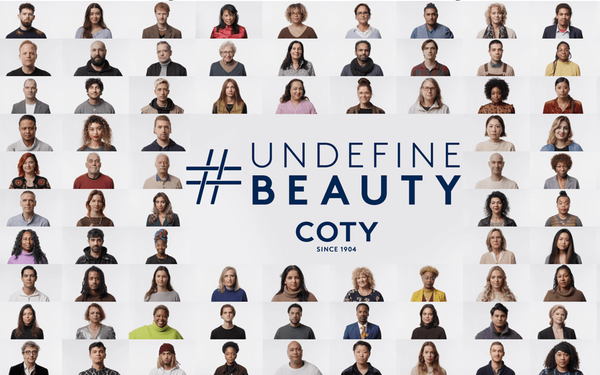
Beauty brands usually don't reach
out to lexicographers, but Coty is trying to start a movement.
The marketer is basing its new “#UndefineBeauty” campaign on an experiment it did with 100 people. It asked all of
them, of various ages, ethnicities and genders, to define beauty.
Their answers are delightfully varied -- in sharp contrast to dictionary definitions and sample sentences. Typical sentence
examples are invariably used to describe young women, such as “He was struck by her beauty” and, even worse, “She had been a great beauty in her youth.”
Coty captures
the effort in a four-minute video, now running on its social channels. The campaign also includes a petition, so consumers can share and
encourage others to sign.
advertisement
advertisement
A spokesperson for the company says the idea came from its newly defined corporate purpose: “Together, we unleash every vision of beauty.”
“The beauty of today is a different notion to what it was even a few years ago,” she tells Marketing Daily. “New generations have thrown out the old, restrictive rules,
deconstructed the beauty paradigm, and built a new one that is fluid and ever-changing.”
Yet dictionaries haven’t caught up. The goal is to "undefine" rather than simply
"redefine," so that no one feels excluded by the definition or examples that accompany it, the spokesperson says via email.
So Sue Y. Nabi, Coty’s chief executive officer, has written an
open letter to the major dictionary publishers, co-signed by Coty’s executive committee and leadership, asking them to rethink outdated definitions that are inherently ageist and/or sexist.
“Seen through the lens of today’s society and values, the definition of beauty hasn’t aged well,” Nabi says in the letter. “The implicit ageism and sexism in the
examples were born in a different time…if more people feel included – feel beautiful – there will be a ripple effect which touches us all.”